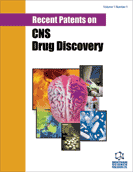Abstract
Obesity has reached epidemic proportions across the developed world. Even though there have been numerous scientific advances in terms of the understanding of the regulation of energy homeostasis, few novel anti-obesity drugs have emerged. Furthermore, those that are available have limited efficacy in producing and maintaining a weight loss beyond 10%. This is partly attributable to the complex neuronal circuitry at play within the central nervous system and periphery, which acts to regulate food intake and energy expenditure. This article will focus on a selection of the many products (peptides, neurotransmitters and others) such as endocannabinoids, Neuropeptide Y, Orexins, Melanin- Concentrating Hormone, Melanocortins, Cocaine and Amphetamine Regulated Transcript and Serotonin, expressed within the brain, that have been shown to influence energy balance. The true relevance of many of these to the regulation of human energy balance remains uncertain, but some novel anti-obesity drugs aimed at these targets are likely to emerge in the next few years.
Keywords: Appetite, food intake, hypothalamus, obesity, energy homeostasis
 4
4

